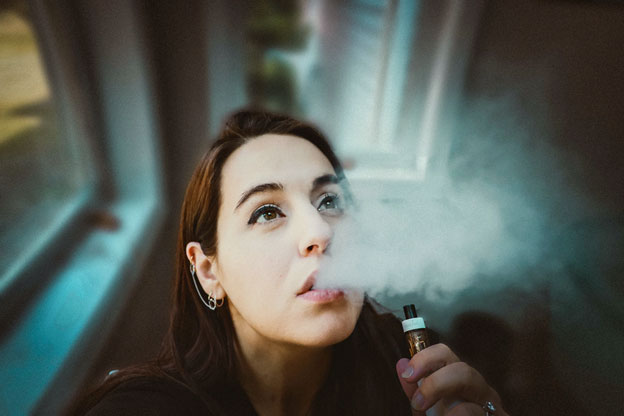Cannabis contains both cannabinoids and terpenes. Many manufacturers combine these two types of natural compounds in their products.
There are considerable differences between cannabinoids and terpenes, however, including:
- Chemical structures
- Sources
- Effects
- Legality
To effectively use these substances in products, it’s necessary to understand the underlying differences between cannabinoids and terpenes. Let’s explore the primary factors that separate these two categories of plant-derived compounds.
What are cannabinoids?
Cannabinoids are specific to the Cannabis sativa plant. While they may bear structural similarities to certain terpenes and other plant-derived compounds, cannabinoids are only found in cannabis.
The most common cannabinoids are:
- CBD
- THC
- CBG
- CBN
- CBC
Each of these cannabinoids has a variety of forms. Scientists are discovering new cannabinoids all the time.
Some cannabinoids are intoxicating. Others affect your body more subtly and offer non-intoxicating effects.
What are terpenes?
Terpenes are non-intoxicating compounds found in Cannabis sativa and many other plants. Unlike cannabinoids, terpenes are not exclusive to cannabis.
A terpene found in cannabis has an identical chemical structure to the same terpene found in a different plant. There is, for instance, no discernible difference between a limonene terpene found in cannabis and a limonene terpene found in an orange peel.
Terpenes can have a variety of different effects. Some terpenes have antioxidant properties while others fight microbial infections. Still other terpenes help with nausea or even combat cancer.
Examples of popular, abundant terpenes include:
- Caryophyllene
- Myrcene
- Limonene
- Bisabolol
- Linalool
Do some terpenes act like cannabinoids?
Despite being found in non-cannabis plants, some terpenes act like cannabinoids. It’s important to note at the outset, however, that no terpenes stimulate the CB1 cannabinoid receptor, which is the neuroreceptor responsible for THC intoxication.
The terpene beta-caryophyllene interacts with the CB2 receptor, which, like the CB1 receptor, is part of the endocannabinoid system. While CB1 activation makes you feel high, CB2 activation does not have any notable psychoactive effects.
Instead, activating the CB2 receptor helps with inflammation and pain. Terpenes are some of the only non-cannabinoid substances known to interact with the endocannabinoid system.
There’s clearly a link between cannabinoids and terpenes. We don’t know enough about the evolution of cannabis to be sure, but it’s possible that cannabinoids are mutated forms of terpenes that developed exclusively in Cannabis sativa.
Will terpenes get you high?
Terpenes are not intoxicating. No terpenes have been discovered that provide intoxicating effects.
That’s not to say terpenes are entirely psychoactively inert. Each terpene affects your body differently, and some terpenes have relaxing effects while others might make you more alert.
In fact, most cannabis connoisseurs attribute the unique effects of specific cannabis strains to their terpene profiles. Science has not yet proven a definitive link between terpene profiles and the effects of particular cannabis strains, however.
Due to their lack of intoxicating properties, terpenes are also not habit forming. At the same time, terpenes provide powerfully beneficial effects that might rival the benefits of cannabinoids.
Which terpenes get you higher?
Terpenes are often added to THC-rich cannabis products to accentuate the intoxicating properties of this cannabinoid. While terpenes won’t get you high themselves, certain terpenes might boost the effects of THC:
- Myrcene regulates the activity of cannabinoids and other terpenes. As a result, this terpene might streamline the effects of THC in your system.
- Pinene acts as a bronchodilator, potentially increasing the bioavailability of inhaled THC.
- Linalool has sedative effects, potentially enhancing relaxation provided by THC.
- Limonene has energizing effects, potentially counteracting sedation caused by other terpenes and making THC intoxication livelier and more enjoyable.

Are cannabinoids legal?
Some cannabinoids are legal, but others aren’t. Under the Controlled Substances Act (CSA), “marihuana” remains a Schedule I drug, and the federal government’s definition of marihuana is relatively wide.
According to the CSA, the term “marijuana” refers to “all parts of the plant Cannabis sativa” including the “resin extracted from any part of such plant.” The CSA has recently been updated to remove “industrial hemp” from the definition of marijuana.
Industrial hemp is defined as Cannabis sativa that contains “a delta-9 tetrahydrocannabinol concentration of not more than 0.3 percent on a dry weight basis.” So, cannabis extracts are legal as long as they’re obtained from hemp plants that contain less than 0.3% THC.
Are cannabinoids regulated?
Even legal substances are subject to government regulation. The FDA generally regulates substances intended for inclusion in food, supplement, or drug products, and this agency has yet to rule on “industrial hemp” cannabinoids like CBD, CBG, and CBN.
To summarize, cannabinoids exist within a unique regulatory framework. There’s considerable pressure to classify non-intoxicating cannabinoids as minimally regulated supplements, but THC will likely always remain tightly regulated.
Are terpenes legal?
Yes, terpenes are fully legal. These compounds are found in thousands of different plants aside from cannabis. There have never been any efforts to outlaw or apply special regulatory frameworks to terpenes.
Cannabis-derived terpenes vs. botanical terpenes
In the case of cannabis-derived terpenes, however, the situation becomes complicated. Remember the federal definition of “marihuana” we listed above?
That’s right. According to the CSA, terpenes derived from cannabis plants that contain more than 0.3% THC are technically marihuana “resin.” As a result, cannabis-derived terpenes extracted from THC-rich plants could be considered just as illegal as “marihuana” itself.
Cannabis-derived terpenes extracted from Cannabis sativa plants containing less than 0.3% aren’t “marihuana.” However, it’s very difficult (if not impossible) to prove the cannabinoid profile of a cannabis plant from which terpenes have been derived after the fact.
It would, therefore, be all too easy to misclassify legal cannabis-derived terpenes as illegal, Schedule I drugs. That’s why, at Terpene Warehouse, we exclusively offer wholesale botanical terpenes for sale.
Do cannabinoids and terpenes work together?
Yes, it appears that cannabinoids and terpenes boost each other’s effects. Combining cannabinoids with terpenes might bring out latent benefits that would otherwise remain dormant.
Recently, researchers have become convinced that terpenes play an important role in the entourage effect. Theorized to boost the benefits of cannabinoids, the entourage effect appears to become stronger when cannabinoids are ingested in tandem with terpenes.
Formulating cannabinoid products that don’t also contain terpenes is like selling a puzzle with half the pieces. Botanical terpenes appear to activate the entourage effect just as effectively as cannabis-derived terpenes.
Cannabinoids vs. terpenes: The bottom line
Terpenes shouldn’t be lumped together with cannabinoids. They’re a distinct class of compounds, and they are by no means exclusive to Cannabis sativa.
That doesn’t mean, however, that cannabinoids and terpenes don’t have anything in common. Both classes of compounds are, after all, present in cannabis, and cannabinoids don’t seem to operate at their best without terpenes.
Botanical terpenes are fully legal, they won’t get you high, and they offer plenty of benefits on their own. Combining terpenes with cannabinoids, however, is a match made in heaven.









